
Flying in cold conditions isn’t just uncomfortable — it can be dangerous if your fingers go numb while you’re adjusting the throttle or tuning radios. That’s why pilot gloves aren’t just an accessory for student pilots—they’re a necessity when winter sets in or you’re flying in unpressurized cabins at altitude.
In this detailed guide, we’ll explore the best pilot gloves for cold-weather flying in 2025, what features to look for, and top picks trusted by flight instructors, students, and bush pilots alike.
✈️ Affiliate Disclosure: This article contains affiliate links. If you make a purchase through them, we may earn a commission at no extra cost to you. That’s how we keep this content in the air.
❄️ Why Student Pilots Should Consider Flying Gloves
You might not think you need gloves as a student, but here’s why it’s worth considering:
-
✈️ Cold aircraft cabins (especially in Cessnas or taildraggers)
-
🎛️ Improved grip on yokes, throttles, and control sticks
-
🔒 Tactile protection from sharp, metallic surfaces
-
📱 Touchscreen compatibility for iPads or GPS units
Whether you’re doing cross-country training flights, night flights in winter, or just prepping your cockpit gear, a solid pair of pilot gloves keeps you warm, comfortable, and focused.
🧤 What to Look For in Pilot Gloves for Cold Weather
Before we dive into product recommendations, here’s what to consider:
1. Thermal Insulation
Look for gloves with thin thermal layers that retain warmth without bulk.
2. Touchscreen Compatibility
You should be able to operate ForeFlight or your iPad without removing gloves.
3. Grip & Dexterity
Grippy materials like leather, synthetic suede, or silicone palms are ideal. Gloves should never feel bulky—fine motor control is key in the cockpit.
4. Breathability
Moisture buildup = cold fingers. Pick gloves with breathable liners to prevent sweat buildup.
5. FAA-Compliant (if applicable)
Some commercial and military training schools require specific glove types (like Nomex). Know your school’s rules.
🏆 Top 8 Best Cold Weather Pilot Gloves for Students (2025 Picks)
Here’s a curated list of gloves that fit both aviation functionality and student pilot budgets.
| Glove Name | Type | Touchscreen | Warmth Rating | Price Range | Best For |
|---|---|---|---|---|---|
| Hatch NS430 Flight Glove | Nomex + Synthetic | ✅ | Medium | $$ | Professional, student pilots |
| Flyboys F-16 Pilot Glove | Nomex + Leather | ✅ | Medium-High | $$$ | Military-style cockpit training |
| Mechanix Wear Tactical M-Pact | Synthetic/Carbon | ✅ | Medium | $$ | High-dexterity, touchscreen use |
| GliderGear Winter Aviator Glove | Fleece + Grip Palms | ✅ | High | $ | Soaring, cold VFR flights |
| Ironclad Cold Condition Glove | Thermal Synthetic | ✅ | High | $$ | Icy morning flights |
| Outdoor Research StormTracker | Gore Windstopper | ✅ | High | $$$ | Harsh wind, long XC flights |
| 5.11 Tactical Competition Glove | Tactical Style | ✅ | Medium | $$ | Students who multitask gadgets |
| Wiley X Aries Flight Gloves | Fire Resistant | ✅ | Medium | $$$ | Military/civilian crossover |
🧤 1. Hatch NS430 Specialist Flight Gloves – Trusted by Pilots for Years
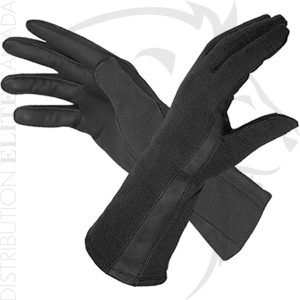
A classic among GA and military pilots alike. These gloves offer great dexterity, grip, and enough warmth for most U.S. winter flying conditions.
✅ Pros:
-
Stretchy, snug fit
-
Thin fleece lining for cold resistance
-
Velcro wrist closure
-
Good tactile feedback for radios and instruments
❌ Cons:
-
Not great for below-freezing flights
-
May wear out faster with heavy use
🧤 2. Flyboys F-16 Pilot Gloves – The Real Deal
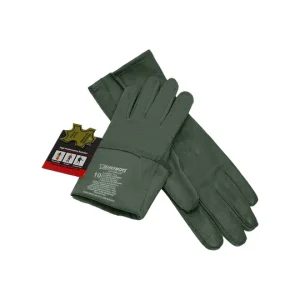
Used in military training and adapted for general aviation. These gloves bring a combination of fire resistance, comfort, and high-altitude reliability.
✅ Pros:
-
Nomex construction
-
Leather palms for grip
-
Great warmth for moderate to cold cockpits
-
Used in Air Force flight schools
❌ Cons:
-
Pricier than casual gloves
-
May require break-in period
🧤 3. Mechanix Wear Tactical M-Pact Gloves – For Tech-Heavy Flights
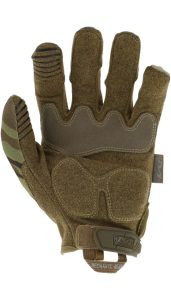
Originally made for mechanics and tactical users, but now favored by pilots using multiple touchscreen gadgets. Excellent for iPads, GPS, EFBs.
✅ Pros:
-
Impact protection (good for wrenching)
-
Good touchscreen response
-
Tight fit for full control
-
Ventilated and sweat-resistant
❌ Cons:
-
Not insulated enough for freezing weather
-
Loud colors unless you pick black
🧤 4. GliderGear Winter Aviator Gloves – Budget-Friendly Warmth
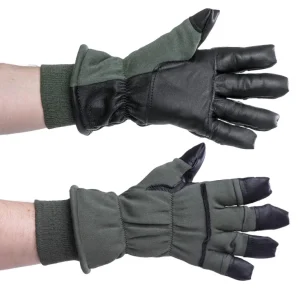
Perfect for glider students or Cessna trainers in colder states. Combines warm fleece with functional design.
✅ Pros:
-
Inexpensive
-
Lightweight and comfy
-
Good grip with touchscreen pads
❌ Cons:
-
Not for harsh conditions
-
No fire resistance
🧤 5. Outdoor Research StormTracker Gloves – For Arctic Vibes
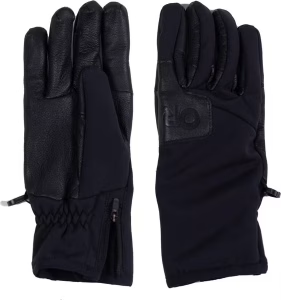
These are for serious cold—think Alaska bush flying or XC flights in early mornings. Made with Gore Windstopper fabric.
✅ Pros:
-
Blocks wind and cold completely
-
Tight, tactical design
-
Rugged grip palms
-
Touchscreen tips
❌ Cons:
-
Higher cost
-
Too warm for average spring flights
🧤 How to Choose the Right Pair for You
Here’s a quick quiz:
Do you mostly fly in:
-
California, Arizona, Texas? → Light gloves like Hatch NS430 or Mechanix
-
Colorado, New England, Midwest winters? → StormTracker or Ironclad
-
Mixed seasons? → Flyboys or Wiley X with layering
✈️ Student Packing Tip: Carry Two Pairs!
Keep one thin pair for spring/fall and a warmer set for winter or night flying. Your fingers will thank you.
✅ Pilot Glove FAQs
❓ Can I use motorcycle or winter gloves?
Not ideal. They’re usually too thick, slippery, or not compatible with avionics or touchscreens.
❓ Should my gloves be fireproof?
If your flight school or plane requires it (military training, aerobatics, taildraggers), yes. Otherwise, Nomex gloves are optional.
❓ How do I wash pilot gloves?
Always check the label. Most leather/Nomex gloves should be hand-washed and air-dried.
🧭 Final Thoughts: Stay Warm, Stay Focused
Cold hands can lead to slower reaction times, dropped radios, or even checklist errors. The right pair of student pilot gloves isn’t just a winter purchase—it’s an investment in your safety, focus, and comfort.
You don’t need to spend a fortune. Just pick a set that matches your climate, your gear, and your cockpit style.
